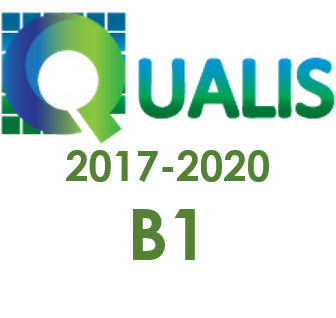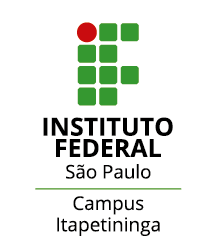Reducing the gap between theory and practice during the pandemic:
planning a complex virtual environmental project
Keywords:
Educación ambiental. TIC. Competencias. Proyectos. Pandemia.Abstract
Confinement, due to the pandemic, reveals that teachers are not at all prepared to lead virtual educational processes. The aim is to reduce the gap between theory and practice, presenting an example of how to plan and develop a virtual educational experience using the Complex Environmental Formation Theory. Methodologically planning is based on Complex Environmental Competence and projects. Limitations, contents, as well as possible intercultural processes and virtual learning communities, are discussed. In conclusion, planning is to relate theory and practice, making didactic decisions and teacher professional development.
Downloads
References
ALMEIDA, G. M.; FRANÇA, M. L. C. A importância do planejamento para transformação da prática docente: estudo de caso realizado em uma escola municipal De Paulo Afonso-Bahia. Revista Rios Eletrônica, v. 20, p. 63-80, 2018. Disponível em: https://bit.ly/2yQB35I
ÁLVAREZ-GARCÍA, O.; SUREDA-NEGRE, J.; COMAS-FORGAS, R. Evaluación de las competencias ambientales del profesorado de primaria en formación inicial: estudio de caso. Enseñanza de las ciencias, v. 36, n.1, p. 117-141, 2018.
ARDOIN, N.; BOWERS, A.; WYMAN, N.; HOLTHUIS, N. Environmental education and K-12 student outcomes: a review and analysis of research. The Journal of Environmental Education, v. 49, n. 1, p. 1-17, 2018. DOI: 10.1080/00958964.2017.1366155
BIESTA, J. On the idea of educational theory. In IRBY, B.; BROWN, G.; LARA-ALECIO, R.; JACKSON, S. (Eds). The handbook of the educational theories. Charlotte: Information Age Publishing, 2013, p. 5-15.
BRIGGS, L.; TRAUTMANN, N.; FOURNIER, C. Environmental education in Latin American and the Caribbean: the challenges and limitations of conducting a systematic review of evaluation and research. Environmental Education Research, v. 24, n. 12, p. 1631-1654, 2018. DOI: 10.1080/13504622.2018.1499015
BURMEISTER, M.; EILKS, I. An understanding of sustainability and education for sustainable development among German student teachers and trainee teachers of chemistry. Science Education International, v. 24, n. 2, p. 167-194, 2013 a. Disponível em: https://files.eric.ed.gov/fulltext/EJ1015833.pdf
CARABALLO, G. Educación ambiental: del enfoque por competencias al enfoque por habilidades. Magistro, v. 5, p. 10, p. 33-42, 2011. Disponível em: https://dialnet.unirioja.es/servlet/articulo?codigo=3945764
CÁRDENAS, P,; DEXTRE, T.; GARCÍA, V.; SANTIVAÑEZ, L. Escuelas limpias. Proyecto de gestión ambiental. Journal of Economics, Finance and Administrative Science, v. 13, p. 25, p. 131-149, 2008.
COLOM, A.. La teoría de la educación: contexto actual de los estudios pedagógicos. En COLOM, A.; BERNABÉU, J.; DOMÍNGUEZ, E.; SARRAMONA, J. (coord.). Teorías e instituciones contemporáneas de la educación. Barcelona: Ariel, 2005, p. 151-162.
CORONEL, G.; LOZANO, Á. La formación de competencias y la realización pedagógica desde la educación ambiental en el contexto ecuatoriano. Conrado, v. 15, n. 67, p. 333-341, 2019.
DANNENBERG, S.; GRAPENTIN. T. Education for sustainable development – learning for transformation. The example of Germany. Journal of Futures Studies, v. 20, n. 3, p. 7–20, 2016. DOI:10.6531/JFS.2016.20(3).A7
DE LA CRUZ, W.; OVALLE, V.; CERVANTES, M.; VILLAMIL, J.; RIVERA, A. Las competencias ciudadanas como generadoras de cultura ambiental. Cultura, Educación y Sociedad, v. 9, n. 2, p. 67-76, 2018.
ERDOĞAN, M.; KOSTOVA, Z.; MARCINKOWSKI, T. Components of environmental literacy in elementary science education curriculum in Bulgaria and Turkey. Eurasia Journal of Mathematics, Science and Technology Education, v. 5, n. 1, p. 15-26, 2009. Disponível em: https://doi.org/10.12973/ejmste/75253
ESCHENHAGEN, M. The environmental issue and the environmental education in universities: some indicators and reflections. Revista de Educación y Desarrollo, v. 19, p. 35-41, 2011. Disponível em: https://bit.ly/2IVIVpT
ESTRADA, J. La pedagogía ambiental desarrolla competencias para la conservación y cuidado del ambiente: experiencia con estudiantes universitarios. Revista Boletín Redipe, v. 7, n.9, p. 71-83, 2018.
FORZANI, F. Understanding “core practices” and “practice-based” teacher education: learning from the past. Journal of Teacher Education, v. 65, n.4, p. 357–368, 2014.
FRANCO. M. A. S. Prática pedagógica e docência: um olhar a partir da epistemologia do conceito. Revista Brasileira de Estudos Pedagógicos, v. 97, n. 247, p. 534-551, 2016. Disponível em: https://doi.org/10.1590/s2176-6681/288236353
FUENTES, N.; GONZÁLEZ, H.Greening of university curriculum: a challenge of ecopedagogy. Tecné, Episteme y Didaxis, v. 40, p. 310-339, 2016. Disponível em: https://bit.ly/2H1IaJU
GALFRASCOLI, A. Conceptos estructurantes: reflexiones teóricas y propuestas prácticas para organizar la enseñanza de las ciencias. Bio-grafía. Escritos sobre la Biología y su enseñanza, v. 10, n. 19, p. 179–192, 2017.
GROSSMAN, P.; HAMMERNESS, K.; MCDONALD, M. Redefining teaching, re-imagining teacher education. Teachers and Teaching: theory and practice, v. 15, n. 2, p. 273–289, 2009.
GUTIÉRREZ, J.; GONZÁLEZ, A. Ambientalizar la universidad: un reto institucional para el aseguramiento de la calidad en los ámbitos curriculares y de la gestión. Revista Iberoamericana de Educación, v. 36, n. 7, p. 1-14. Disponível em: https://rieoei.org/RIE/article/view/2932
JUNYENT, M.; OCHOA, L. Competencias del profesorado y ambientalización: compañeras de viaje indispensables hacia la sostenibilidad. Revista Prâksis, v. 1, p. 11-14, 2008. Disponível em: http://www.redalyc.org/pdf/5255/525552618003.pdf
KANEVIESKIR, T.; GARCIA, Y.; SANTOS, E.; CARVALHO, M.; LEAL, A; GUIMARÃES, E. Valorizando a água e o lixo na educação ambiental. Revista Ciência em Extensão, v. 5, n. 2, p. 1, 2009. Disponível em: https://ojs.unesp.br/index.php/revista_proex/article/view/313
KHADEMI-VIDRA, A. Curriculum planning of the environmental education. Journal of Central European Green Innovation, v. 5, n. 1, p. 65-80, 2017.
LEIVA, J. J. La interculturalidad a través de las TIC: un proceso de aprendizaje en red. Revista Didáctica, Innovación y Multimedia, v. 25, p. 1-13, 2013.
MARÍN, B.; TAMAYO, G. Organización estructural de un currículo problémico: construcción de escenarios dinámicos. Colección Maestros, v. 6, p. 63-94, 2006.
MARQUES, R.; GONZALEZ, C.E.F.; XAVIER, C.R. As dificuldades da inserção e da prática em educação ambiental no currículo escolar. VXI Encontro Paranaense de Educação Ambiental. Curitiba: Universidade Federal do Paraná, 2017, p. 1-3.
MARTÍNEZ, G.; BARRI, F. Conceptos estructurantes y enfoques interdisciplinares en la enseñanza del Ecoturismo en la Carrera de Especialización en Turismo Alternativo (Universidad Nacional de Córdoba). Revista de Educación en Biología, v. 20, n. 2, p. 85-99, 2017.
MARTIRES, H.; SOUSA, C.; BOSA, A. As TIC como ferramentas de educação intercultural. Sociologia on line, v. 8, p. 43-70, 2014.
MORIN, E. Pensamiento ecologizado. Gazeta de Antropología, v. 12, p. 1-7, 1996. Disponível em: https://www.ugr.es/~pwlac/G12_01Edgar_Morin.pdf
MORIN, E. Introducción al pensamiento complejo. Barcelona: Gedisa, 1998.
MORIN, E. Epistemología de la complejidad. Gazeta de Antropología, v. 20, p. 1-15, 2004. Disponível em: http://www.ugr.es/~pwlac/G20_02Edgar_Morin.pdf
MORKUN, V.; SEMERIKOV, S.; MORKUN, N.; HRYSHCHENKO, S.: KIV, A. Defining the Structure of Environmental Competence of Future Mining Engineers: ICT Approach. 1st International Workshop on Augmented Reality in Education. Kryvyi Rih: State Pedagogical University, 2018, p. 198-203.
MPOFU, V.; OTULAJA, F.; MUSHAYIKWA, E. Towards culturally relevant classroom science: a theoretical framework focusing on traditional plant healing. Cultural studies of science education, v. 9, p. 221–242, 2014. https://doi.org/10.1007/s11422-013-9508-5
PAREDES-CHI, A.; VIGA-DE ALVA, M. Environmental education (EE) policy and content of the contemporary (2009-2017) Mexican national curriculum for primary schools. Environmental Education Research, v. 24, n. 4, p. 546-580, 2018.
PELAEZ, M.; HERNÁNDEZ, S. Accionando las 3R. Propuesta de educación ambiental. Actas V Jornadas de Enseñanza e Investigación Educativa en el campo de las Ciencias Exactas y Naturales. Ensenada: Universidad Nacional de La Plata, 2019, p. 1-10.
PUERTO M.; TOVAR-GÁLVEZ, J. C. Relaciones institución-comunidad en procesos de educación para la sostenibilidad: evaluación de un proyecto de huerta escolar desde la complejidad. Reunión de expertos desarrollo sostenible. Realidades y mitos para el desarrollo. Varsovia: Universidad de Varsovia, 2018.
RAMOS, I.; CARVALHO, E.; DA SILVA DINIZ, R. Abordagem ecológica em educação ambiental: elaboração de um guia ilustrado de peixes de água doce. Revista Ciência em Extensão, v. 5, n. 1, p. 74-87, 2009.
RÍOS, D.; HERRERA, D. Los desafíos de la evaluación por competencias en el ámbito educativo. Educação e Pesquisa, v. 43, n. 4, p. 1073-1086, 2017.
ROCZEN, N.; KAISER, F.; BOGNER, F.; WILSON, M. A Competence Model for Environmental Education. Environment and Behavior, v. 46, n. 8, p. 972–992, 2014. DOI: 10.1177/0013916513492416
ROSSELLÓ, M. R. El reto de planificar para la diversidad en una escuela inclusiva. Revista Iberoamericana De Educación, v. 51, n. 4, p. 1-10, 2010. Disponível em: https://doi.org/10.35362/rie5141825
SAMALTANI, D.; CHRISTIDOU, V. Water conservation in the nursery school. Global NEST Journal, v. 15, n. 3,p. 421-429, 2013.
SANDOVAL, W. Conceptual and epistemic aspects of students' scientific explanations. The Journal of the Learning Sciences, v. 12, n. 1, p. 5-51, 2003. Disponível em: www.jstor.org/stable/1466633
STEVENSON, R. B. Schooling and environmental/sustainability education: from discourses of policy and practice to discourses of professional learning. Journal Environmental Education Research, v. 13, n. 2, p. 265-285, 2007. DOI:10.1080/13504620701295650
TIAN, Y.; WANG, CH. Environmental education in China: development, difficulties and recommendations. Journal of social science studies, v. 3, n.1, p. 31-43, 2016.
TORRES, M. Diseño curricular de un programa académico en turismo, a partir de núcleos problémicos: una experiencia regional. Revista de investigaciones UNAD Bogotá, v. 12, n. 1, p. 195-209, 2013.
TOVAR-GÁLVEZ, J. C.; CÁRDENAS, N. La importancia de la formación estratégica en la formación por competencias: evaluación de las estrategias de acción para la solución de problemas. Revista Electrónica de Investigación Educativa, v. 14, n. 1, p. 122-135, 2012.
TOVAR-GÁLVEZ, J. C. Formación investigativa de profesores: el problema como producto del proceso de problematización. Profesorado, Revista de Currículum y Formación del Profesorado, v. 22, n. 01, p. 133-148, 2018.
TOVAR-GÁLVEZ, J. C. Currículo de educación ambiental desde la complejidad: construcción de la competencia ambiental a través de proyectos. En: Hernández, A., Camarena, B., Ramírez, R. & Escobar, O. (Ed.). Educación ambiental en el siglo XXI: del trayecto de construcción a la imperiosa necesidad. Hermosillo: CIAD-CONACYT, 2020, p. 105-140.
TOVAR-GALVEZ, J. C. Pedagogía ambiental y didáctica ambiental como fundamentos del currículo para la formación ambiental. Revista Brasileira de Educação, v. 18, n. 55, p. 877-898, 2013. Disponível em: https://doi.org/10.1590/S1413-24782013000400005
UZUN, L. Utilising technology for intercultural communication in virtual environments and the role of English. Procedia - Social and Behavioral Sciences, v. 116, p. 2407-2411, 2014.
WINDSCHITL, M.; THOMPSON, J.; BRAATEN, M.; STROUPE, D. Proposing a core set of instructional practices and tools for teachers of science. Science Education, v. 96, n. 5, p. 878–903, 2012.
WINTER, J.; COTTON, C. Making the hidden curriculum visible: sustainability literacy in higher education. Environmental Education Research, v. 18, n. 6, p. 783-796, 2012. DOI:10.1080/13504622.2012.670207
WÜST, A. Über das Selbstverständnis der Pädagogik als Wissenschaft. In Mikhail, T. (Dir.). Zeitlose Probleme der Pädagogik - Pädagogik als zeitloses Problem?Karlsruhe: KIT Scientific Publishing, 2011.
Downloads
Published
How to Cite
Issue
Section
License
Copyright (c) 2020 Revista Internacional de Pesquisa em Didática das Ciências e Matemática

This work is licensed under a Creative Commons Attribution-NonCommercial-NoDerivatives 4.0 International License.




